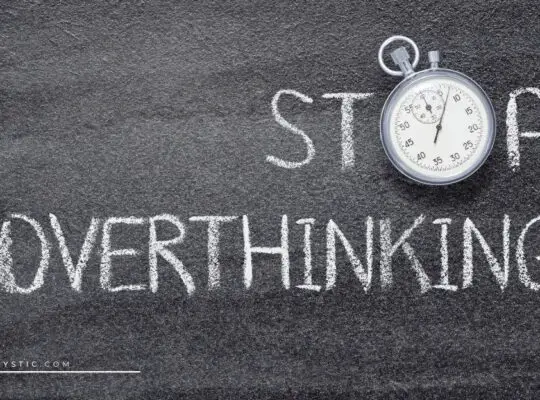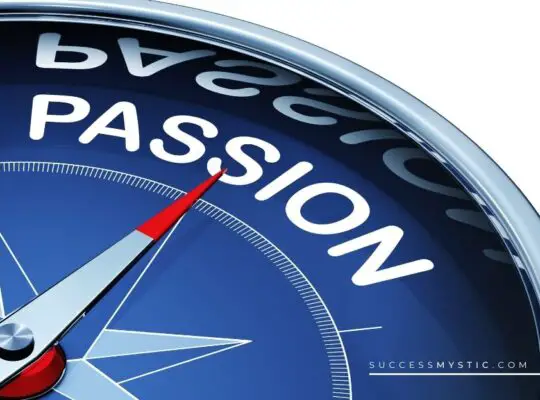Are You A Reactionary? Stop Reacting And Learn To Calm Yourself
Someone cuts you off on the freeway. You’re so angry you’re slow to honk your horn because you’re busy shouting and swearing after them.
You sigh loudly and often stuck in the slow line at the supermarket.
A social media post has your hackles up and before you can stop yourself, you’re typing an angry reply.
These are just a few of the common actions of an emotionally reactive person. Quick to react to a delay, an issue, controversial idea, a mistake, traffic jam, miscommunications or other problems. You might know someone like this or, you may be realizing that you are also one of these people.
You can feel it flaring up throughout your day. You might not realize it or not, but it’s making your life incredibly difficult. You are imprisoned by your own emotions.
Imagine this.
Someone is walking the dog. The human is using a leash which allows them to guide and control the actions of the dog.
That’s what a reactive person truly is – the human and the dog.
So, when a dog spots a pigeon it immediately wants to rush to it for further inspection. The human is then required to leap into action to prevent this from occurring.
It’s the exact same when dealing with someone who is reactive. You see something you don’t like, and your unconscious reaction is akin to chasing and barking at it. What you need to learn how to do is become the human master who pulls you back in before you react. The only way you can do that is by learning how to calm yourself.
Pause
When you feel it rising up or you recognize a trigger, it’s important to pause and take a breath. For example, you’re in traffic and someone cuts in because they hedged their bets and raced to the front of the crowd before a lane closes. It happens every day. Don’t immediately allow yourself to get angry – shift your energy through breath.
Label
What exactly is your reaction? Is it anger? Frustration? Insecurity or anxiety? If someone has cut you off, then there’s a good chance your reaction is anger. However, as you navigate your day, there will be a range of reactions for you to label.
Ask
Ask yourself why this has triggered you in the way it did. Did the event or situation itself trigger you? Or, is it related to something that happened previously? The point of this step is to make yourself aware of your blind spots and triggers.
Often, the emotion in our reaction is down to something simmering below the surface. It’s deeper than just being cut off. Rather, you might be reacting angrily because you feel like it’s going to make you late. Think about this, have you ever cut someone off because you have been running late? Probably. That doesn’t make it right, but it should help you put it into perspective.
Choose
You’ve paused, labeled, and asked, now it’s time to choose your response. This is a key step in the process. Think about your goal, what matters most, and how you can respond productively. Is getting angry going to help you achieve your goal?
No. The goal in our example is to get to work (or another destination) on time and safely. Getting angry is going to shift your focus and distract you from that goal. A better response would be to shake it off and focus on the drive.
Empower
Finally, it’s time to empower yourself! You can only move forward if you possess the awareness necessary to create better outcomes for everyone. Of course, it isn’t easy, but with practice, you will find yourself shifting away from reactive emotions and calming yourself more effectively. It’s all about building your capacity for self-reflection.
Are You Too Impulsive in Your Thoughts and Behaviors?
Impulsivity is often associated with neurological disorders or addiction. Children diagnosed with Attention Deficit Hyperactivity Disorder are often scrutinized for their impulsive behavior. Adults with mild to severe addiction constantly battle between silencing their impulsive urges and giving into them.
Impulsivity can be described as feeling an overwhelming urge to do something and lacking the self-control to not give into this. This behavior could be positive or negative.
The underlying cause of this is poor self-control management in addition to other factors. It can erode happiness and get in the way of everyday life. Many people who suffer from severe impulsivities may need professional attention and guidance in order to overcome these feelings.
While these cases impact a certain percentage of individuals, we all suffer from individualized impulses. Whether it’s blurting our inappropriate things or desperately trying to put down that bag of chips, impulses can direct our behavior. Let’s consider questions surrounding impulsivity and how to overcome them.
Do you blurt out the first thing that comes into your mind?
One way to determine if you need practice with impulse control is assessing your verbal habits.
- Ask yourself, do I find myself saying things without thinking?
- Do I make others uncomfortable?
- Do others express that my expressions are offensive?
If the answer to any of those is yes, quite possibly you experience issues with verbal impulse control.
Do you find yourself acting and then thinking?
Everybody does something and then later regrets their actions. However, if it occurs on a regular basis, you may need to hone in on your impulses. The problem with acting irrationally is that we often have to sit with regrets. Actions are permanent and cannot be taken back. Taking the extra time to slowly think before you act may lessen the degree of regret you feel in the future.
Often times, acting without thinking can come in many forms. It may be mindlessly eating junk food, spending unnecessarily or checking social media frequently. Each case is different, but not all involve speaking out of term. The power of impulses is strong as it can impede our daily routines.
How can I gain control over my impulsivities?
While it may seem challenging trying to rewire your brain, there are practical steps you can take towards gaining control over your impulses. The first begins with mindfulness. Mindfulness involves being present in the moment without attempting to change it. This helps with impulsivities because it forces you to stop and concentrate on what your body is doing.
Learn how to slow down. Although slowing your pace may seem counterproductive, it can actually help you work through your thoughts. You will be able to analyze your future behavior so as to avoid regret.
This will help you to make the best decision possible; especially when it comes to blurting out certain things. This is also key in your work life. If you find yourself going over your work before submitting it, you are able to catch mistakes and eliminate room for error. This is an excellent way to limit impulsivity and increase productivity.
If you notice that your impulses are too powerful, it may be wise to consult with a professional. A therapist or counselor can provide you with positive ways to cope with your impulses. They can even help you with the medication process should you need it.
Although impulsivity is strong, you have the power to conquer it.
By slowing down, getting the necessary help and taking care of yourself, you can conquer this feat. You deserve to live a happy and healthy life. Don’t let your impulses impede your happiness.







